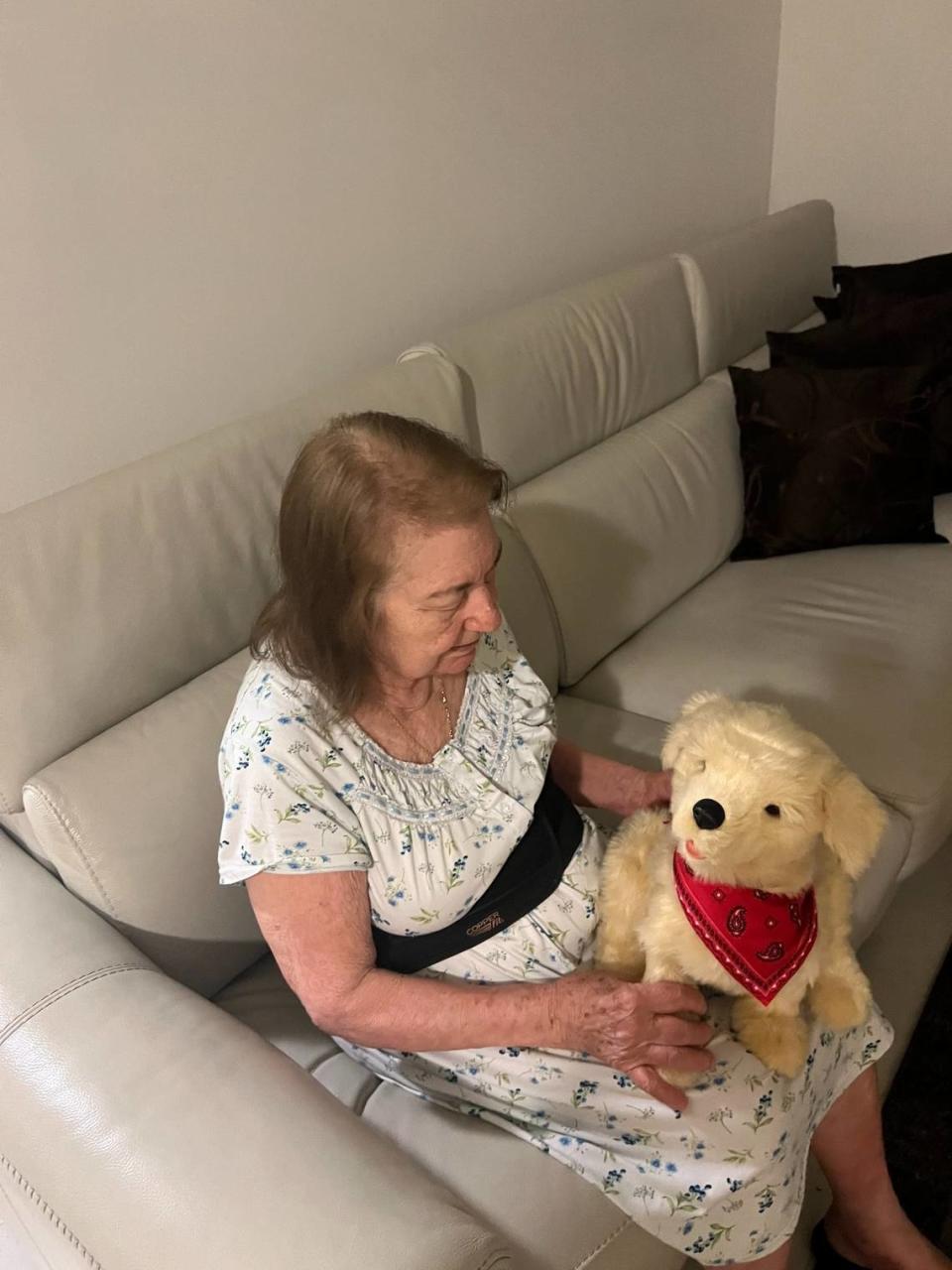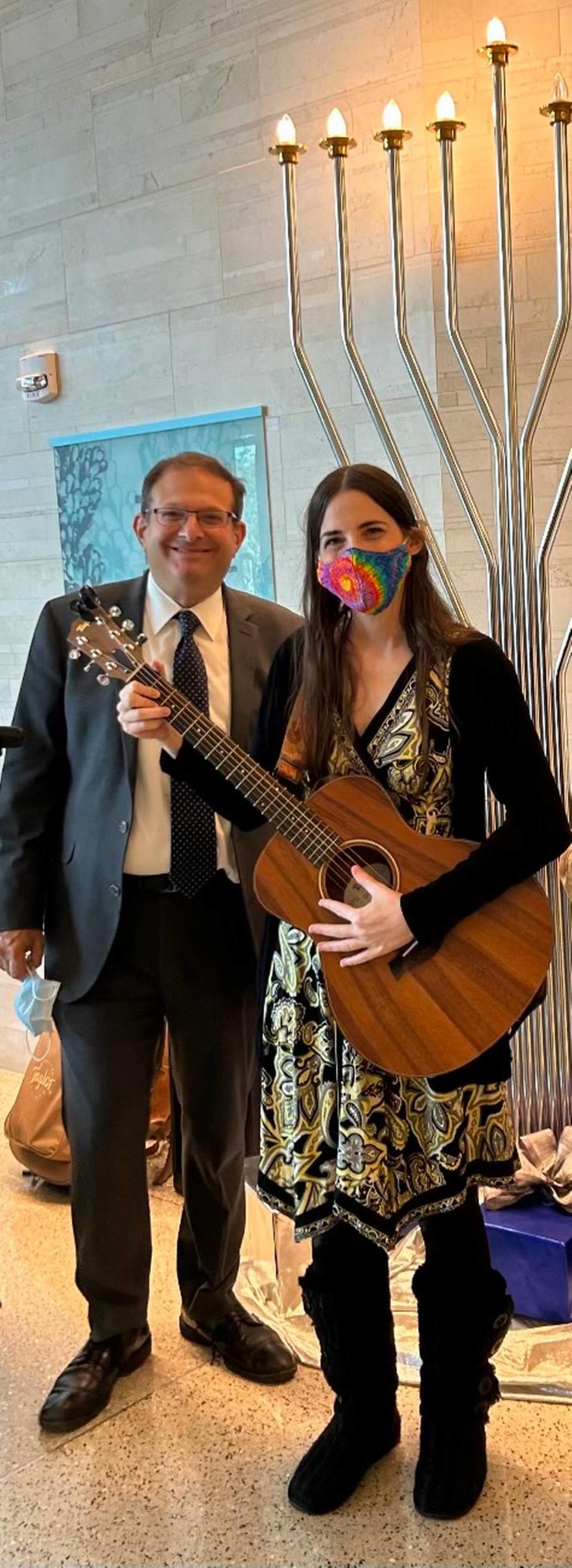‘They should not be alone.’ Helping seniors combat loneliness, social isolation
- Oops!Something went wrong.Please try again later.
From the surgeon general to the Centers for Disease Control and Prevention, experts are highlighting a growing epidemic of loneliness and isolation among Americans, exacerbated by the onset and lasting effects of the COVID-19 pandemic.
This summer, U.S. Surgeon General Dr. Vivek Murthy called it a “public health crisis,” noting the highest rates of social isolation were found among older adults, who often live alone and have lost family and friends as they age.
Several South Florida organizations have been working to combat this and support seniors who live at home.
Assisting seniors at home
The nonprofit Jewish Family Home Care (JFHC) provides in-home assistance to over 400 seniors in the Broward County area, many of whom are Holocaust survivors. A staff of more than 500 helps with a variety of daily activities, such as preparing meals, administering medication, housekeeping, bathing, transportation to doctor’s appointments and general companionship.
The JFHC was established in 2015 through a Claims Conference Grant, awarded to organizations that assist Holocaust survivors, but is open to seniors of any faith, and paid clients as well.
“We provide peace of mind to clients to be able to age in their own home,“ said Robin Miller, JFHC’s chief operating officer.
Registered nurses, certified nursing assistants and home health care assistants monitor clients regularly and there is a 24/7 hotline. When news broke of the Oct. 7 Hamas attack on Israel, staff checked in on every single client to assess if they needed emotional support.
“For some, it was like going through the Holocaust again,” Miller said.
Home care doesn’t just benefit the elderly; it also alleviates stress on family and caregivers.
Rita Koretko, who had had experience with other agencies in the past, said the organization’s staffers go out of their way to support her and her mother, Riva Rodkina, 86, who came to live with her from New Jersey in 2021. Up until about a year ago, her mother could still do advanced math in her head, but that began to change. She now depends on home care daily.
Koretko said she appreciates the wellness checks and how they keep her informed when her mother’s medications are running low.
“Anytime I call, they always pick up the phone,” she said. “It seems to me they really care about their clients.”
Helping low-income seniors, people with disabilities
In Miami-Dade County, the Alliance for Aging received more than 151,000 first-contact calls last year. Established in 1989, the nonprofit agency provides a range of services and referrals to support low-income seniors and their caregivers, as well as persons with disabilities, so they can remain independent at home for as long as possible.
That has become more challenging with the local population growth. According to the Alliance’s 2022 Report to the Community, Miami-Dade and Monroe counties are home to more than 678,000 individuals 60 and older, who make up roughly 23% of the Miami-Dade population. Of those, 98,000 have two or more disabilities.
“We have a large, diverse low-income population in Dade and Monroe counties and it’s increasing more and more,” said Max Rothman, Alliance’s president & CEO.
As one of 11 agencies in the region that are part of a national network, the Alliance for Aging oversees funding to deliver services through providers, including day care, meal delivery, long term care for veterans, post-hospital care, disaster relief, legal help, transportation, Medicare access, assistance for the homeless and more.
Over the past two years, the Alliance has begun experimenting with technology as a tool for addressing loneliness. The U-Connect initiative is a device that connects to the TV to facilitate video telehealth, remote assessments, family communication and access to other seniors. Other tools include an elder-friendly tablet, and electronic, interactive pets with authentic sounds and a texture for a comforting experience.
“The pets have proven to be very successful, especially with individuals that have cognitive issues,” Rothman said.

Technology can be a useful tool, but is it enough? In his report, the surgeon general lays out the framework for a national strategy to address loneliness and isolation centered on strengthening social connections.
Helping seniors, the ill and those grieving
That resonated with Rabbi Frederick L. Klein, director of the Greater Miami Jewish Federation’s spiritual care program, Mishkan Miami, who read the report.
Since 2008, Rabbi Klein has led an initiative called Refuat Ha-Nefesh Fellows, which means Healing of the Spirit in Hebrew, to “foster a sense of community and family and provide support for people aging and ill.”
The program brings together rabbis, chaplains, mental health professionals and gerontologists to provide emotional support and companionship to those in need. The group also trains volunteers and leads conferences on aging and spirituality. Most recently, the Federation launched a pilot program to train individuals in helping others cope with grief.
“Part of our commitment is the belief that people should have access to resources in times of need. When people are in difficult situations in their life, they should have a place to connect. They should not be alone,” Rabbi Klein said.

Refuat Ha-Nefesh Fellows offer 12-week training sessions for volunteers. Those who complete the program — more than 250 to date — often start their own projects to spread compassion and bereavement support. The next training session begins Dec. 17.
How to get help
Jewish Family Home Care: 954-420-7313; www.jfcares.org
Alliance for Aging: 305-670-4357; www.allianceforaging.org
Greater Miami Jewish Federation, Mishkan Miami: 305-576-4000; www.jewishmiami.org

